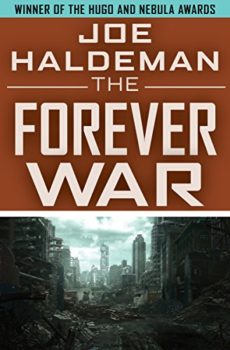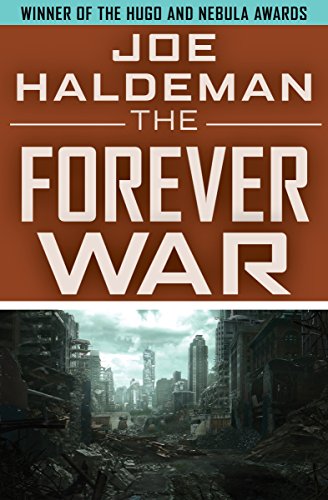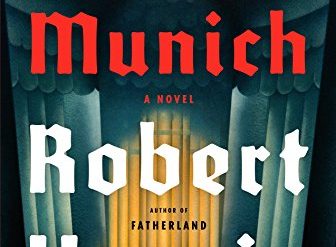
Joe Haldeman’s classic science fiction war novel, The Forever War, appears on most lists of the all-time most popular stories in the field. The book won both the Hugo and Nebula Awards for Best Novel. When it was published in 1974, the Vietnam War was winding down. Haldeman had fought in the war and was badly wounded there. At the time, a dozen publishers rejected the novel because, as Haldeman reveals in an Author’s Note at the front of the Kindle edition of the novel, “‘nobody wants to read a science fiction novel about Vietnam.'”
Estimated reading time: 4 minutes
Today, the parallel between the Vietnam War and Haldeman’s story is difficult to see. The Forever War could be no war in history, or every war. “It’s about Vietnam because that’s the war the author was in,” Haldeman writes. “But it’s mainly about war, about soldiers, and about the reasons we think we need them.”
A classic science fiction war novel set centuries in the future
The Forever War opens in the 1990s, a period that seemed far off when the book was published. But the time quickly advances far into the future as a result of the time dilation explained by the Theory of Relativity. Haldeman posits travel at near light-speed through portals in space-time that are most commonly called “wormholes.” He generally refers to them as “collapsars,” which are the super-dense product of supernovae. This is the mechanism through which Haldeman can portray his protagonist, William Mandella, fighting in an interstellar war with an alien race called Taurans over the course of many centuries.
The Forever War (Forever War Trilogy #1) by Joe Haldeman (1974) 292 pages ★★★★★
Winner of the Hugo and Nebula Awards for Best Novel
This is hard science fiction—up to a point
Haldeman treats relativity on the basis of a solid understanding of astrophysics. Mandella is, in fact, a physicist. The starships Haldeman describes appear to be consistent with our understanding today of ship design and propulsion systems appropriate for space travel. And, unlike most science fiction authors who venture far into the future, Haldeman clearly grasps the ways language changes over time. Centuries later, in his telling, 21st-Century English is virtually unintelligible to contemporaries. In fact, of course, there’s unlikely to be anything virtual about the difficulty. Just try to understand Old English today!
However, relativity, spaceship design, and linguistics aside, Haldeman’s tale is entirely fanciful. The super-weapons he describes may well be based on what scientists today might imagine will be possible. But they are, in the end, imaginary. So, too, are the Taurans.
Considerations of reality notwithstanding, this classic science fiction war novel is suspenseful, tightly written, and psychologically plausible. And this Kindle edition is, in fact, Haldeman’s original text, before the publishers of the 1970s toned it down for what they deemed the less tolerant readers of the time.
About the author
The Forever War was Joe Haldeman‘s second published novel. It remains the work for which he is best known. He has written more than 30 novels and received every major industry award. Haldeman’s long, successful career has won him a Grand Master Award from the Science Fiction and Fantasy Writers of America and placement in the Science Fiction Hall of Fame.
For related reading
You’ll find this book in good company at Great military science fiction.
I’ve also reviewed this novel’s “sequel that’s not a sequel,” Forever Peace – Forever War Trilogy #2 (A prescient look at the military of the future).
To get a sense of how badly a much less talented science fiction writer could mangle a story of war between humans and aliens, see The Rift (Resistance #1) by Nathan Hystad (The alien invasion is coming, and we even know when).
For more good reading, check out:
- These novels won both Hugo and Nebula Awards
- The ultimate guide to the all-time best science fiction novels
- 10 top science fiction novels
- The top 10 dystopian novels
- Ten new science fiction authors worth reading now
And you can always find my most popular reviews, and the most recent ones, on the Home Page.


























